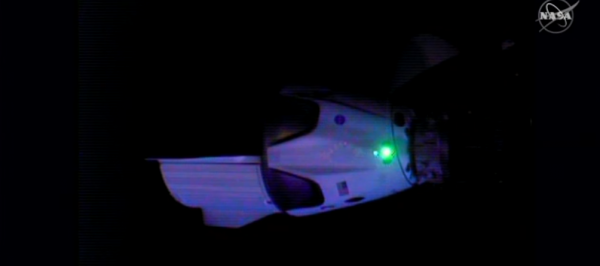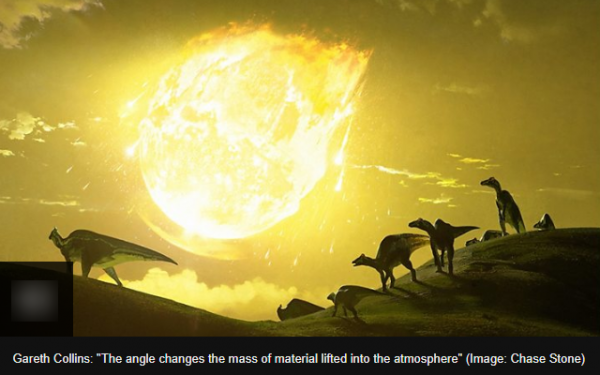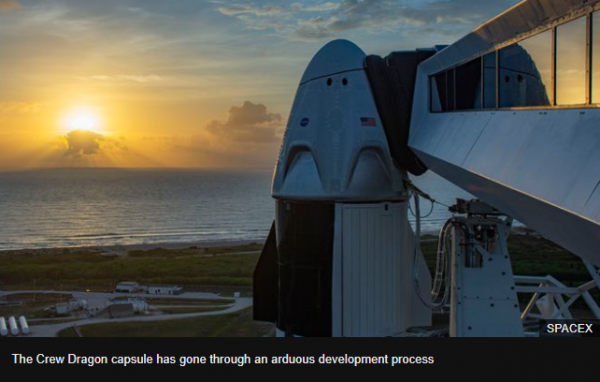-
Posts
20,850 -
Joined
-
Last visited
-
Days Won
49
Everything posted by CaaC (John)
-
- 1,657 replies
-
- space exploration
- astronomy
-
(and 1 more)
Tagged with:
-
That lady in control had my face mask on!!!!
- 1,657 replies
-
- space exploration
- astronomy
-
(and 1 more)
Tagged with:
-
- 1,657 replies
-
- space exploration
- astronomy
-
(and 1 more)
Tagged with:
-
- 1,657 replies
-
- space exploration
- astronomy
-
(and 1 more)
Tagged with:
-
- 1,657 replies
-
- space exploration
- astronomy
-
(and 1 more)
Tagged with:
-
- 1,657 replies
-
- space exploration
- astronomy
-
(and 1 more)
Tagged with:
-
7 Pieces of Reading Advice From History’s Greatest Minds If there’s one thing that unites philosophers, writers, politicians, and scientists across time and distance, it’s the belief that reading can broaden your worldview and strengthen your intellect better than just about any other activity. When it comes to choosing what to read and how to go about it, however, opinions start to diverge. From Virginia Woolf’s affinity for wandering secondhand bookstores to Theodore Roosevelt’s rejection of a definitive “best books” list, here are seven pieces of reading advice to help you build an impressive to-be-read (TBR) pile. >> 1. Read books from eras past // Albert Einstein
-
New iguana species is found 'hiding in plain sight' in the Caribbean - having been known to inhabitants for years but thought to be a South American 'invader' SLIDES - 1/6 A new species of iguana has been identified in the Caribbean after scientists analysed the DNA of individuals thought to be an introduced South American variety. The Southern Antilles iguana, which lives on St Lucia, St Vincent and the Grenadines, was shown to form a distinct genetic group. Known to humans for centuries, it was also found to have unique bodily features including horns on its nose, a high crest and dark brown eyes. It is the fourth iguana type to be identified in the region in two years, as zoologists tear up the rule-book from previous research, which had classified each as the common green iguana. Fauna & Flora International (FFI), which announced the discovery, said work was already underway to protect the 'new' reptiles. Two types identified last year, the very rare Saint Lucia iguana and Grenadines pink rhino iguana, have been named as variations of this species - or subspecies. The former is identified by broad black bands across its body while the latter turns pinkish-white in old age. Zoologists think they may have overlooked the species previously as their juveniles are bright green, just like those of the invasive species, making them 'virtually indistinguishable' until they reach adulthood. FFI senior conservation biologist Dr Jenny Daltry heralded the find as a breakthrough but said more action must be taken to protect the reptiles. 'Caribbean iguanas are in grave danger because of invasive alien species, habitat loss and over-hunting for bushmeat and the pet trade,' she said. 'We know what needs to be done.' What is the Southern Antilles iguana? The Southern Antilles iguana is a new species identified by scientists at Fauna and Flora International (FFI). It was separated due to a unique genetic profile and distinguishing features, which include horns on the nose, a high crest and dark brown eyes. The St Lucia iguana, identified by black bands on its body, and Grenadines pink rhino iguana, which turns a pinkish-white in old age, have been named as subspecies. The find was made possible with the help of the Durrell Wildlife Conservation Trust, the Saint Lucia Forestry Department, and the Saint Vincent and the Grenadines Forestry Department. Initially, only two species of six-and-a-half-foot iguanas were known in the Caribbean - the critically endangered Lesser Antillean iguana and the introduced common green iguana. But that changed last year when scientists identified the Saint Lucia iguana, which has broad black bands on its body, and the pink rhino iguana, which turns pinkish-white in old age. In April this year, a fifth was added when the very dark reptiles living on Montserrat and Saba were identified as the melanistic or Saban black iguana. The Southern Antilles iguana emerged after experts at FFI, the Durrell Wildlife Conservation Trust, the Saint Lucia Forestry Department and the Saint Vincent and the Grenadines Forestry department ordered an analysis of the genetics of several iguanas living in the Southern Antilles, which confirmed suspicions they weren't invasive. All the species are threatened by the introduced common green and Central American horned iguanas, which can cross-breed with them and out-compete them for resources. Both arrived on the islands after they were discarded as pets, swept ashore by hurricanes and through stowing away on cargo boats. The invaders also breed faster than the natives, meaning there is a risk they will be outcompeted for access to resources. Saint Lucia used to be called 'Iyanola'. meaning land of the iguanas, revealed the head of wildlife at the Saint Lucia forestry department, Pius Haynes. But the reptiles have been in decline as their natural habitat is removed by humans and they are hunted for meat and as pets. The new designation gives them better protection under CITES, making it harder to export the native iguanas. https://www.msn.com/en-gb/news/offbeat/new-iguana-species-is-found-hiding-in-plain-sight-in-the-caribbean-having-been-known-to-inhabitants-for-years-but-thought-to-be-a-south-american-invader/ar-BB14MCFZ#image=1
-
Chelsea leads a number of top clubs in the chase for Juventus and Italy winger Federico Bernardeschi, 26. (Gazzetta dello Sport - via Express)
-
- 1,657 replies
-
- space exploration
- astronomy
-
(and 1 more)
Tagged with:
-
Pretend I am @nudge, she more than likely has been on the booze and lying in bed asleep. Launch and Falcon 9 returning to Earth
- 1,657 replies
-
- 1
-

-
- space exploration
- astronomy
-
(and 1 more)
Tagged with:
-
- 1,657 replies
-
- 1
-

-
- space exploration
- astronomy
-
(and 1 more)
Tagged with:
-
- 1,657 replies
-
- space exploration
- astronomy
-
(and 1 more)
Tagged with:
-
SpaceX launch: Nasa astronauts set for a second try Rocket company SpaceX will make a second attempt in the coming hours to get Nasa astronauts Doug Hurley and Bob Behnken into orbit. Their flight to the International Space Station (ISS) on Wednesday was postponed because of poor weather at Florida's Kennedy Space Center. Saturday's forecast is not brilliant. The meteorologists say conditions will probably be touch and go again. The lift-off is scheduled for 15:22 EDT (19:22 GMT; 20:22 BST). FULL REPORT
- 1,657 replies
-
- space exploration
- astronomy
-
(and 1 more)
Tagged with:
-
Nothing can beat a walk in the woods and witness mother nature.
-
World's deepest octopus captured on camera The deepest-ever sighting of an octopus has been made by cameras on the Indian Ocean floor. The animal was spotted 7,000m down in the Java Trench - almost 2km deeper than the previous reliable recording. Researchers, who report the discovery in the journal Marine Biology, say it's a species of "Dumbo" octopus. The name is a nod to the prominent ear-like fins just above these animals' eyes that make them look like the 1940s Disney cartoon character. US adventurer reaches deepest points in all oceans Deepest-ever sub dive finds plastic waste Robot duo wins ocean-mapping XPRIZE The scientist behind the identification is Dr Alan Jamieson. He's pioneered the exploration of the deep using what are called "landers". These are instrumented frames dropped overboard from research ships. They settle on the seabed and record what passes by. FULL REPORT
-
Biggest UK solar plant approved The go-ahead has been given to the UK’s biggest solar farm, stretching 900 acres on the north Kent coast. The government has approved the controversial scheme, which will supply power to 91,000 homes. The project could include one of the world’s largest energy storage systems. But it has been fiercely opposed by many local people, and it’s divided, green groups. Greenpeace, the RSPB and the countryside charity CPRE are against the plan. They say it’s industrialising the countryside - and may harm an adjacent wildlife site. But Friends of the Earth offered qualified support, on the grounds that the current intensively-farmed land was bad for wildlife anyway. Their spokesperson Mike Childs said: “No-one wants to see damage to local habitats, but this is not some lovely, untouched meadow. “Changing the use of the site from intensive agriculture will reduce the high level of chemicals currently harming insects and wildlife - but we have to hold the developers to account”. Rooftop panels? Environmentalists want the developers to offer free rooftop solar panels to local people who are protesting against the solar farm – and especially against the giant energy storage unit, which they fear may prove an explosion risk. The facility will use 25 acres of the total land and the countryside charity CPRE says the proposed battery storage system has caused fires and explosions around the world. The developers Wirsol Energy and Hive Energy say it’s safe. They maintain the subsidy-free project will be one of the lowest-cost power generators in the UK and will bring local councils £1m every year that it is running. Cheap panels In 2015, the government controversially announced it would phase out subsidies from solar power to a howl of protest from the industry. But the cost of solar panels has tumbled by two thirds since 2010. The Energy Secretary Alok Sharma said the decision was taken after careful consideration – but said the project would be a world leader in solar and power storage. https://www.bbc.co.uk/news/business-52841223
-
Been drinking red wine and thought WTF are they talking about
-
Annoying all right, lying in bed reading a book and l logged in to watch the launch and heard it had been cancelled, I bet you @nudge will be pissed off too.
- 1,657 replies
-
- space exploration
- astronomy
-
(and 1 more)
Tagged with:
-
- 1,657 replies
-
- space exploration
- astronomy
-
(and 1 more)
Tagged with:
-
-
Science & Environment Dinosaur asteroid's trajectory was 'perfect storm' A clear picture is emerging of why the asteroid that struck Earth 66 million years ago was so catastrophic. The space object, which wiped out 75% of all species including the dinosaurs, hit the worst possible place on the planet and - according to new research - at the most lethal angle. Investigations at the crater site, together with computer simulations, suggest the impactor dug into the crust at an inclination of up to 60 degrees. This exacerbated the climatic fallout. We know that the target rocks, in what is now the Gulf of Mexico, contained huge volumes of sulphur from the mineral gypsum. When this material was thrown high into the atmosphere and mixed with water vapour, it produced a "global winter". And the angle of attack ensured this environmental crisis was intense and prolonged. "At 45 to 60 degrees, the impact is very efficient at vaporising and ejecting debris to high altitude. If the impact happens at shallower or much steeper angles, the amount of material that's put into the atmosphere that can then have climate-changing effects is significantly less," explained Prof Gareth Collins from Imperial College London. "It's evident that the nature of the location where this event happened, together with the impact angle, made for a perfect storm," he told BBC News. The majority of plant and animal life on Earth succumbed to the challenging conditions. Prof Collins' and colleagues' work is published in the journal Nature Communications. FULL REPORT
-
Nasa SpaceX launch set to usher in a new era for human spaceflight American space agency (Nasa) astronauts Doug Hurley and Bob Behnken will create a piece of history on Wednesday when they launch from the Florida coast. The pair's trip to the International Space Station (ISS) will be made in a rocket and capsule system provided by a private company, SpaceX. Nasa has traditionally always owned and operated its space vehicles. But that is a capability it gave up in 2011 when it retired the last of the space shuttles. The agency now wants to contract out all future crew transportation to low-Earth orbit to the commercial sector. And assuming Wednesday's flight goes well, this new way of working will be implemented in full. "We're starting a new era in space; it's an era when space is going to be available to more people than ever before," explained Nasa Administrator Jim Bridenstine. "We envision a future where the low-Earth orbit is entirely commercialised, where Nasa is one customer among many customers, and where we have many providers competing on cost, on innovation and safety." FULL REPORT
- 1,657 replies
-
- space exploration
- astronomy
-
(and 1 more)
Tagged with:
-
Norfolk Island morepork owls: Major breakthrough for rare species On a remote Australian island, two owl chicks have survived to fledgelings, the first to do so in more than a decade. The Norfolk Island morepork owl has an estimated population of only 45-50, making the pair a huge boost for the future of the species. https://www.bbc.co.uk/news/av/world-australia-52572967/norfolk-island-morepork-owls-major-breakthrough-for-rare-species


.thumb.png.6769d931697bf20bf8f5c020aebd64ee.png)

.thumb.png.2e9ec639922140e02183d49835c149b9.png)
.thumb.png.5be72ddd2c3afd3ff7da86e7253a5328.png)






.thumb.png.a4c0e1cdda566c7452f22b0575731679.png)






